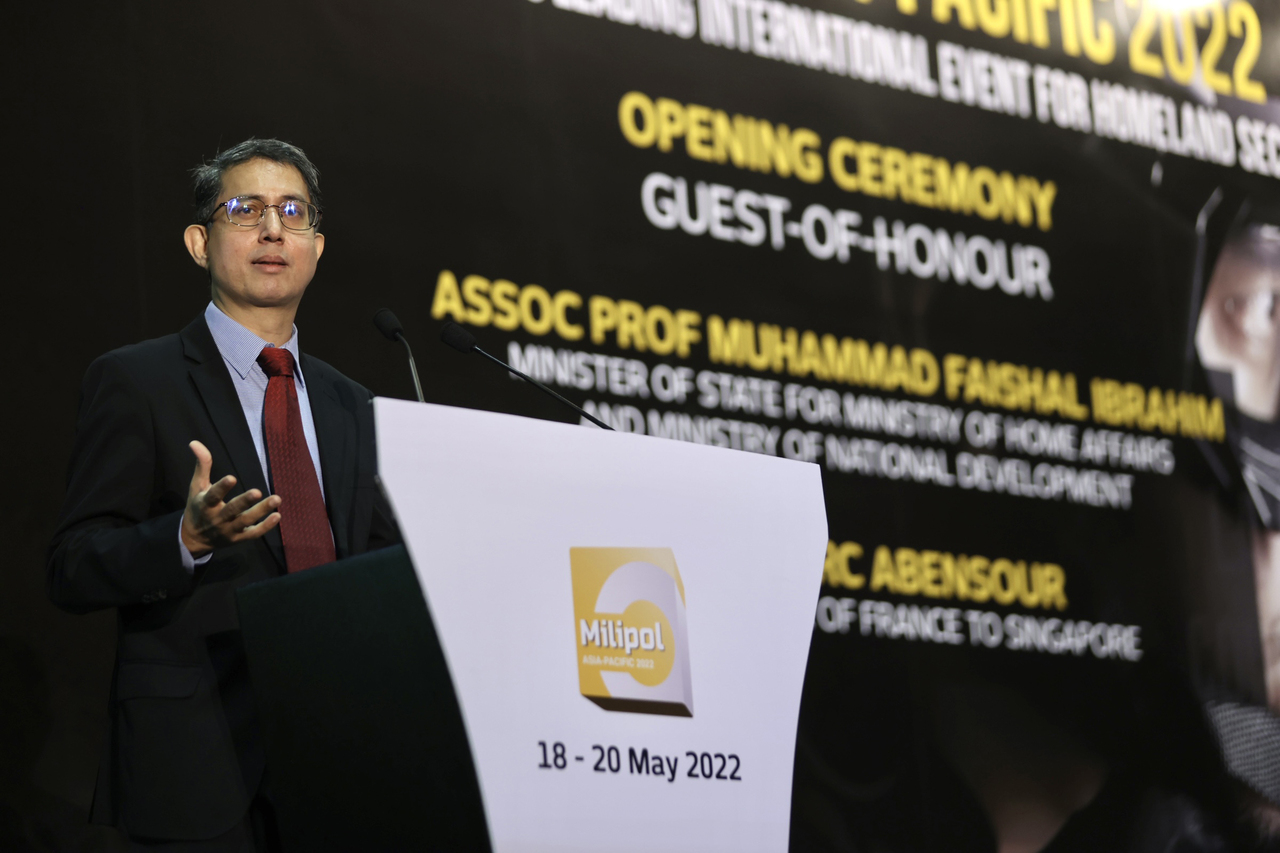No country, including Singapore, immune to terrorism as it evolves: Faishal
Sign up now: Get ST's newsletters delivered to your inbox

Minister of State for Home Affairs Muhammad Faishal Ibrahim said far-right extremism has emerged as a growing threat.
PHOTO: MILIPOL ASIA-PACIFIC 2022
Follow topic:
SINGAPORE - Terror groups such as the Islamic State in Iraq and Syria and Al-Qaeda have been hit hard in recent years with leadership losses and setbacks, but they have proven resilient and adaptable.
At the same time, far-right extremism has emerged as a growing threat as its supporters become more organised and capable of mounting attacks, said Minister of State for Home Affairs Muhammad Faishal Ibrahim on Wednesday (May 18).
He was speaking on the first day of Milipol Asia-Pacific 2022, a biennial regional security conference held at Sands Expo and Convention Centre.
"No country is immune - not even Singapore," added Associate Professor Faishal, who was the guest of honour at the conference.
He cited the example of a 16-year-old Singaporean teen who was detained in December 2020 for planning to attack Muslims at two mosques in the Woodlands area on March 15 last year, the second anniversary of the attacks in Christchurch, New Zealand.
"He was inspired by far-right extremist ideology, had a strong antipathy towards Islam, and a fascination with violence," said Prof Faishal.
Noting that domestic efforts alone will not be sufficient, the minister also said law enforcement agencies around the world must work together to prevent, detect and disrupt terrorist groups and individuals from carrying out acts of terror.
Online radicalisation is one of the biggest security threats faced by all countries today, he noted.
"To mitigate this threat, we work closely with community partners and the industry to prevent radical ideologies from taking root in our society, especially through online platforms," said Prof Faishal.
Speaking on international cooperation and public-private partnerships to address security threats, he noted that Milipol Asia-Pacific brings government officials, security practitioners, international experts and leaders from the private sector together to learn and collaborate with one another.
"With the transnational nature of the security challenges in our increasingly interconnected world, countries need to continue working closely and sharing expertise with one another. We must also invest in strong public-private partnerships to implement technology solutions that build up our capabilities to address these challenges," Prof Faishal said.
Meanwhile, he affirmed the strong relationship between Singapore and France, adding that the Ministry of Home Affairs (MHA) has been working closely with the French Ministry of Interior on various areas of security cooperation, and the sharing of expertise.
The two ministries on Wednesday renewed their Strategic Cooperation Plan for another three years by signing a new term of the plan.
The Strategic Cooperation Plan was first signed in 2016 and renewed in 2019.
It has allowed MHA and its French counterparts to deepen collaboration in areas such as counter-terrorism and civil defence, said Prof Faishal.
He added: "This renewal will expand our scope of cooperation and see deeper security partnership between the two ministries."


